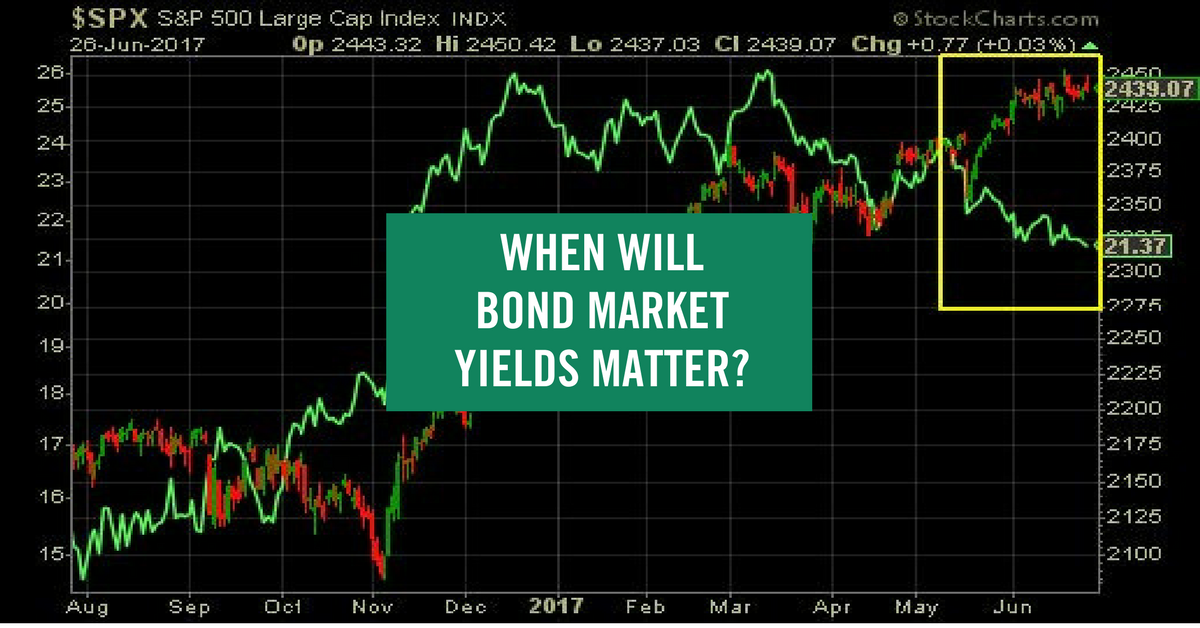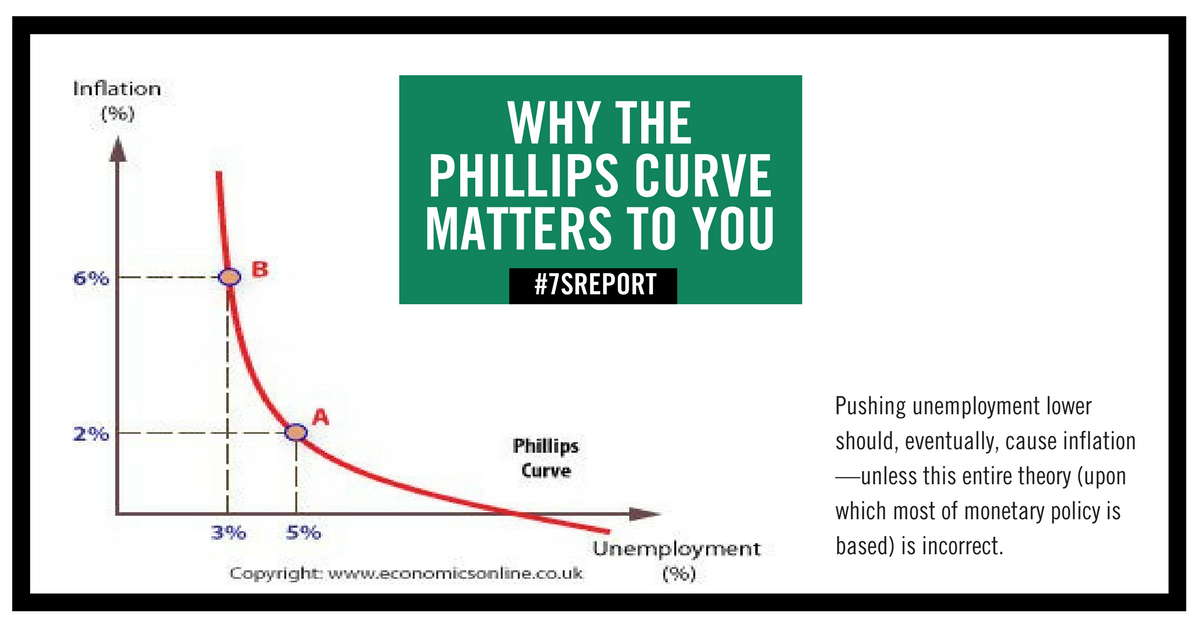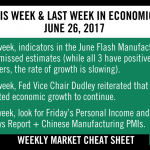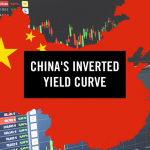When Will the Decline in Bond Yields Matter?, June 27, 2017
Get the simple talking points you need to strengthen your client relationships with a free trial of The Sevens Report.
For three months, we and other macro analysts have been warning that the bond market, via falling yields and a flattening yield curve, was sending a worrisome signal about future economic growth and inflation. And, that falling bond yields would act as a headwind on stocks.
Over that three months, the S&P 500 has moved steadily higher.

When will this chart matter? The S&P 500 (bar chart) has been diverging from yields (green line chart) for three-plus months. At some point, that gap must close.
Now, given that, it might seem like falling bonds yields don’t matter to stocks. However, decades of experience in this business combined with listening to experienced analysts and traders tells me that bond yields always matter to stocks… it’s just a question of “when” they matter.
Regarding when, most of us are working on a medium/longer-term time frame (i.e. quarters and years), so getting the bigger market signals right is more important than outperforming over a few weeks.
To that point, if bond yields do not reverse in the coming weeks/months, then I am quite sure that over the medium/longer term the stock market is in for a potentially significant pullback. Avoiding that pullback will be the key to multi-year outperformance.
So, the really important question is: “When will low bond yields matter?”
I believe the answer is: When investors realize bond yields are warning about a slowing economy, not lower inflation.
Right now, stock bulls are saying the drop in Treasury yields is just due to declining inflation—not because of potential slower economic growth.
Specifically, they’re pointing to statistical measures of inflation such as the CPI, PCE and the Price Deflator in GDP. Those measures of inflation are falling, which usu-ally means deflation (which is bad for stocks).
But, the bulls aren’t as concerned about falling statistical inflation because, in their view, inflation has changed. Specifically, there is a growing school of thought that in a technology-dominated world, the old inflation statistics (CPI/PCE/Price Deflator) no longer capture true inflation in the economy.
For instance, those inflation statistics are currently being driven down by 1) Lower oil, 2) The Amazon effect, where retail margins are relentless slashed, and 3) General technology making most everyday items cheaper and more efficient.
However, those price declines aren’t bad for the economy, and they don’t reflect the lack of consumer demand that usually accompanies falling prices. Technology and margin compression is making these prices fall, not an unwillingness of consumers to spend.
Meanwhile, asset and other forms of inflation are rising quickly. Over the past few years, home prices are up; rents are up, car prices are up, airfares are up, health insurance is up, tuition is up, the stock market is up and the bond market is up. So, the prices of all the things we “need” are up, but the prices of discretionary items (HD TVs, laptops, tablets, dishwashers, appliances) are down. Since CPI measures consumer goods heavily, inflation statistics are subdued.
Based on this logic, many investors aren’t sweating the decline in bond yields, because they believe, for now, that it’s just reflecting the decline in statistical inflation and not a future slowing of actual economic growth.
The key will be to recognize when investors begin to believe low bond yields reflect slower economic growth. That will be the time to get seriously defensive in asset allocations. Yet as Monday showed, with the market ignoring the soft Durable Goods report, we’re not there yet. But if this data doesn’t turn around, we will get there. Unfortunately, we don’t believe it’s different this time and if bond yields don’t start rising in the near term, then stocks will eventually suffer, like they’ve done virtually every time we’ve seen this type of stock/bond discrepancy.
Join hundreds of advisors from huge brokerage firms like Morgan Stanley, Merrill Lynch, Wells Fargo Advisors, Raymond James and more… see if The Sevens Report is right for you with a free two-week trial.









